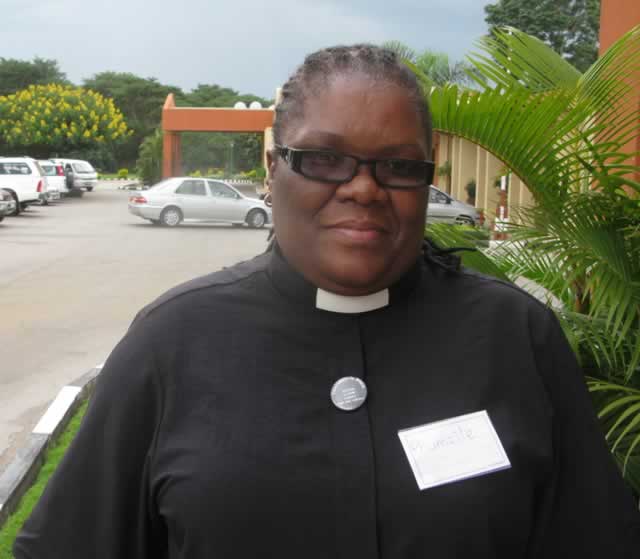Early sex puts girls at risk
The traditional birth attendant charges the same amount but it is payable in instalments. She is still paying off the last fee for her child who is now 18 months old. Moreover, one can pay in kind — a hen, a bucket of maize or even old clothes.
“I have given birth at the local Mbuya Nyamukuta’s ‘clinic’. She is very good and I have not experienced any difficulty at all. I have had a settlement plan for the fee and I have not regretted knowing her,” she said.
Rutendo is the face of a mother in her community because it is not strange to see a child suckling a baby. Girls barely 14 are already mothers and this early sexual debut puts them at the risk of contracting sexual infections, HIV and the human pappiloma virus which cause cervical cancer.
By virtue of falling pregnant too early this means the girls have had unprotected sex and in most instances end up with unwanted pregnancies or getting married if they are lucky.
Rutendo said she has not used any form of contraceptive as her husband does not allow it.
“My husband does not agree that I use contraceptives, so I do not. We use the rhythm method where I know when I am highly fertile and when I am not,” said the young mother.
On being asked why they did not use condoms as a form of contraception she cited a day she suggested that and was beaten up.
“I once suggested that we use condoms since my husband does not like me to take tablets but I ended up with a swollen face. That is how I lost one of my front teeth,” she said showing the gap.
“My husband says condoms are used on women of the night so if I want that I can pack my bags and leave,” she said.
Rutendo said her husband is much older than her, but this does not bother her in the least.
“My husband is the same age with my father, older men are good at looking after their families that is why I agreed to get married to him when his wife died,” she said.
Rutendo said she did not bother to get tested before getting married.
“If I demanded that we get tested for HIV my husband would just have left me and got married to someone willing to skip that test, so I did not and have never been tested because my husband does not allow that,” she said.
Giving birth at a traditional birth attendant puts Rutendo at risk were she to get any complications. This also means that Rutendo has not been able to have her children immunised against the child killer diseases. She has to seek her husband’s consent which unfortunately is denied.
Many more in Hatcliffe area use the same traditional birth attendant.
“The distance to the local clinic is also a challenge hence women prefer to give birth at ambuya’s place,” said Rutendo.
Rutendo has missed the opportunity to have her health and that of her children monitored.
Although the long-term goal of Ante Natal Clinic service delivery in Zimbabwe remains the provision of skilled delivery attendance, PMTCT programmes will benefit from complementary approaches to prevent missed opportunities as in Rutendo’s case.
TBAs are willing to learn and be empowered in relation to prevention of mother to child transmission if the programme is extended to them. There is a need to reinforce their knowledge on mother to child transmission prevention measures and better integrate them into the health system since many women deliver at home.
Youth who begin sexual activity early appear more likely to have sex with high-risk partners or multiple partners and are less likely to use condoms. Rutendo’s spouse is twice her age and was previously married.
Youths who ended up getting married as in Rutendo’s case did not intend to be sexually active that early but found themselves idle before completing Grade 7. For her it is normal in her community for a girl who has breasts (abubudza) to get married.
Early sexual debut is defined as sex before one attains 17 years of age.
In the same community, the rate of separation is also high as demonstrated by women in second or third marriages before they turn 30.
Early sexual debut results in a higher number of lifetime sexual partners, and increases the risk of unintended pregnancy.
PSI implemented the Delayed Debut Regional Campaign, a multi-channel intervention that emphasised the benefits of abstinence, promoted the acceptability of romantic relationships without sex and condemned sexual coercion among youth. The campaign, which was informed by formative research conducted in eight sub-Saharan African countries, was ultimately aired in Angola, Benin, Burkina Faso, Burundi, Democratic Republic of Congo, Guinea, Kenya, Malawi, Togo, Zambia and Zimbabwe. In Zimbabwe, the campaign reached 370 000 youths each month in 2005.
The study found out that community set-ups influenced the timing of the first sexual encounter. Peri-urban areas by virtue of being informally settled and crowded resulted in youths engaging in sex at an early stage than their counterparts in urban areas.
Education, which also plays an important part, seems to be low in peri-urban areas.
The majority of girls in farming communities barely go beyond the seventh grade. With nothing to do after that, they start informal work and end up being breadwinners at too early an age.
As in Rutendo’s case she cannot negotiate for planned child birth or safe sex which compromises her health.
She does not have planned parenthood as she is not in control of her reproductive health. Giving too many births at an early age is a risk and who knows how many kids Rutendo will have by the time she turns 30.
Another study by the Ministry of Health and Child Welfare revealed that 44 percent of women gave birth at home.
This therefore highlights the need to capacitate TBAs in their scope of work. They need to be urged to take their clients to the nearest health facility for baby medication and general health check-ups.
No woman must die while giving life.
[email protected]







Comments